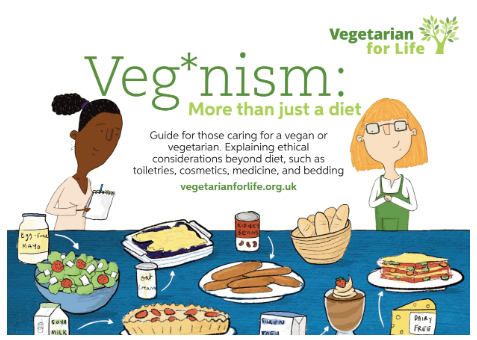
New guidance demystifies hospitality for vegans and vegetarians
You’re sure to have seen positive news about the rise of meat-free diets. Google reports that searches for ‘vegan food near me’ rose by more than 5,000 percent in 2021. Supermarkets, online stores and most catering suppliers are now havens for plant-based foods and both the ingredients and cooking possibilities are endless.
Most people understand that vegans will exclude all animal products from their diet. However, often people overlook that vegetarianism and veganism is a lifestyle, not just a diet.
Vegans, and often vegetarians, avoid any products that are derived from animals or tested on animals in the production process. This includes cosmetics, clothing, cleaning products and even medication.
The Hilton Hotel in London famously launched the world’s first completely vegan hotel suite in 2019. Here, materials such as feathers and leather have been replaced with innovative new vegan alternatives, with the hotel even providing cruelty-free toiletries and a vegan minibar.
Amanda Woodvine, CEO of care charity Vegetarian for Life (VfL), said: “With National Vegetarian Month, World Vegan Month – and even Veganuary – just around the corner, now is a chance to reflect on how well prepared your organisation would be for an influx of vegans or vegetarians. Consider items such as liquid soap, for example. Many heads of hospitality wouldn’t give a second thought to an item like this being a ‘milk & honey’ variety. But this may render it unsuitable for a growing number of guests with religious or ethical objections.
“Luckily, there are many vegan-friendly alternatives available – as VfL’s new guide shows.”
Key statistics
- 1 in 3 Brits have stopped or reduced their meat consumption.
- Since February 2020, the number of vegans in the UK has grown by 40%.
- Older people (65 to 79 years) are leading the way. They are twice as likely to have reduced their meat consumption as 18- to 24-year-olds.
- An estimated 14% of vegans and vegetarians in Great Britain are aged 65 or over.
- Around 10% of the total UK population may have special requirements because of the beliefs that they hold.
Although originally written for those with caring responsibilities, Veg*nism: More than just a diet is useful for all hospitality workers. The guide covers little often discussed issues such as how to find vegan products – from toiletries through to cleaning products, alcohol, and even furniture and bedding.
The guide will help readers identify hidden animal products, explaining what to consider when providing hospitality for a veg*n, ensuring that they can provide exceptional customer service for all.
Download your free copy via the Vegetarian for Life website or call the charity on 0161 257 0887.
